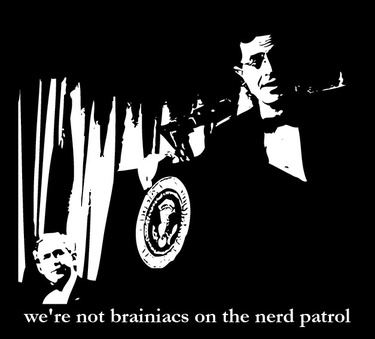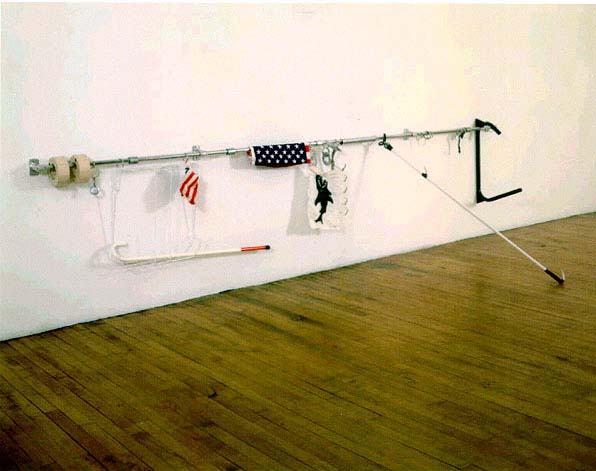Schwarz
View current page
...more recent posts

Marcel Duchamp saw in 1912 a mélange of egos, money, careers, and overblown or makeshift theories. "Like a basket of crabs," was how he described the scene.
Duchamp consciously chose to step outside of it all and to go his own way. LIke the famous Fountain --which was never displayed at that exhibition-- he absented himself from the sold-out ones before they even knew it, and created a vortex in the wake of his (invisible) departure. He became not only better than an artist, his agile independence guided him around all of society's traps, and he honored his calling and mastered his life. In the meantime, without any conscious intention at all, just by example, he was the eccentric who established a new center in art.
nyc in 2016
schwarz art bio
fake gay wrestling hall of fame
"It's about 40 minutes long--its about "If I Could Only Fly"--its about finding a place to sleep at night--a comment about the human condition--they are all songs that I've encountered that I think people have missed" - Jim Dickinson on Free Beer Tomorrow
Free Beer Tomorrow is the first solo release in 30 years from legendary producer and musician, Jim Dickinson. Since his 1972 debut, Dixie Fried, Jim has worked with everyone from Aretha Franklin to Big Star. Some of his projects include playing piano on the Rolling Stones' "Wild Horses," performing on Bob Dylan's 1998 Grammy winning Time Out of Mind, and producing The Replacements Pleased To Meet Me (1987). More recently, Dickinson has also worked with the North Mississippi Allstars, which are led by his sons, Luther and Cody. His boys are among the instrumentalists who appear on his new CD.
Dee Snider, Fred Durst, and Brian Turner
lets go to the video tape
WWE(R) Launches ECW(R) As Third Brand
¶ STAMFORD, Conn., May 25, 2006 - World Wrestling Entertainment,
Inc., today announced the official launch of ECW (Extreme Championship
Wrestling(R)) as a brand extension to its RAW(R)and
SmackDown(R)franchises.
¶ After acquiring the ECW assets in 2003, WWE spent the past few
years re-introducing ECW to the global WWE audience and increasing the
interest in its unique brand of sports entertainment. To date, WWE has
successfully released three ECW DVD's, all of which have become best
sellers, and produced a very profitable ECW pay-per-view event in June
2005, with another ECW pay-per-view scheduled for this June 11, 2006.
With consumer interest at an all-time high, WWE is introducing ECW as
a complementary brand to RAW and SmackDown.
¶ "After keeping the ECW concept alive and creating an enormous
cult-like following for all things ECW from DVD's to PPV's to books,
we feel that now the time is right to officially launch ECW as its own
stand-alone franchise," said Vince McMahon, WWE Chairman. "RAW,
SmackDown and ECW now represent a portfolio of WWE brands for fans of
all ages and interests to enjoy."
¶ Similar to WWE's RAW and SmackDown brands, WWE will produce,
market and promote a full line of ECW products from television
programs to pay-per-views to live events to licensed consumer goods.
¶ In a related announcement, The SCI FI Channel today announced it
would start airing one-hour episodes of a new ECW live television
program, debuting June 13 at 10 p.m. ET.
smelliest block on les
b0b dyl4n on x^^
if your thinking of moving to: laurel canyon
Jenny Holzer's latest show, a survey of sensitive US government documents silk-screened onto linen canvases, offers a wrenching snapshot of the discursive girders and casualties (both textual and corporeal) of state violence. With rare exception, these texts have been rendered anonymous through bureaucratic redactions: An entire 1990 "Memo for the Secretary of Defense" by Colin Powell has been scribbled out, save the signature, while a series of fingerprints have been blotted into a sort of abstract graffiti art. The show tends to circumvent cynicism even as it sanctions an ironic position—perhaps an effect of the frequently shocking content. "I personally have killed a child," reads a line in the middle of a 2004 statement from a US soldier in Iraq. Contrasted with the rhetorical labyrinths assembled by administrators in other pieces, the blunt simplicity of this declaration heightens its dramatic effect, offering an illustration of Holzer's curatorial talent. However necessary, the field of citation is dangerous political ground, and despite Robert Storr's intelligent attempts to obviate criticism in an accompanying essay, it's worth examining the ethics of turning declassified public documents into unique aesthetic objects. One might question the value, or at least the efficacy, of "political art" once it's been funneled away into private collections.
pictures
In the late '30s, Malaparte acquired property on Capri, intending to build a house. The writer redesigned every detail of his planned villa after disputes with the architect, Adalberto Libera, ended in an impasse. With the contractor Adolfo Amitrano and Amitrano's two sons, Malaparte built the place himself.
In The Skin, Malaparte relates that when German Field Marshal Erwin Rommel visited him on Capri, the Desert Fox asked if the writer had designed the house. "No," Malaparte replied. "I created the scenery." Malaparte had likely rehearsed this response to a yearned-for query for years in his bathroom mirror; it was too good a line to throw away, so he simply invented a visit from Rommel that never occurred.
Casa Malaparte bears a glancing resemblance to certain naval vessels used in the American Civil War: a long, slightly out-sloping rectangle, slanted on the landward end, where a trapezoidal stairway widens as it rises from the ground, ending level with a flat roof, where a C-shaped brise-soleil is the only interruption of the sea view.
The building sits on a plateau, flanked by wind-rustled boas of pine boughs and branches of holm oak overhanging the cliffsides of Capo Massullo. The site is the least hospitable outcrop of tufa on Capri, in spitting distance of Tiberius's grotto where, centuries ago, prepubescent "little fishes" nibbled at the emperor's genitals.
Malaparte referred to this domicile as casa come me, "come me" being a favored appellation for things he greatly liked. Another example doubles as a caution against unskeptical readings of Malaparte's fiction: Febo, a dog he rescued on Lipari, inspired a tender prose poem, "cane come me." In The Skin, Malaparte tells how, after years of tender devotion, Febo disappeared. The writer, frantic, searched everywhere on the island for the dog. He finally learned that Febo had been snatched by thieves who sold animals to a local vivisectionist. Malaparte raced to the laboratory, only to find his half-eviscerated pet in the wrenching throes of its last minutes.
The scene breaks any reader's heart. It broke mine, until I chanced upon a letter Malaparte's brother wrote, noting Febo's old age.
* * *
You know the house, from Godard's adaptation of Moravia's novel Contempt. In the film, its owner is the producer Jeremy Prokosch, played to Visigoth perfection by Jack Palance, who tyrannizes director Fritz Lang (playing himself) and cuckolds screenwriter Paul (Michel Piccoli) by seducing Camille (Brigitte Bardot) with Paul's spineless acquiescence. They've come to Capri to finish Lang's version of the Odyssey.
Godard implied no parallels between Malaparte and Prokosch. Prokosch is, as Malaparte wasn't, a dictator in his island hideaway, a barbarian who echoes Goebbels with a contemporary twist: "When I hear the word culture, I take out my checkbook."
Malaparte's casa come me owes nothing to Fascist monumentalism and little to architectural modernism. It is, like the Viennese house Wittgenstein built for his sister, a unique, incomparable architectural anomaly. It was far from perfectly engineered, however. The drainage system wasn't adequate to leach the Mediterranean salinity out of the roof and stucco walls, which were drenched constantly by the Caprian rainfall and occasionally by massive waves. Before its restoration, Casa Malaparte's walls had a consistency of 42 percent corrosive salt.
bronze wire screen door mesh wdi 0.011 18x14 30"w 100' roll $275.00
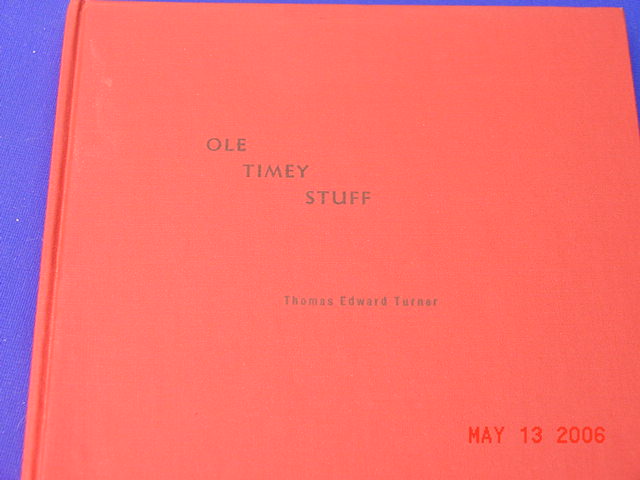
lost delta found

slade slade
two stories. one cant get a trailer from fema and one cant return a trailer to fema
D'IBERVILLE, Miss. — The mail carrier brought the registered letter to Jessica Lessard's tiny trailer, along with a sour and foreboding comment:
"I hope you got better news than I got," she said.
Lessard, 24, tore open the envelope and felt like crying. The letter was from the Federal Emergency Management Agency. It said she and her family had 30 days to leave the flimsy, government-issued box that has been their home since Hurricane Katrina.
[....]
An empty FEMA trailer has been darkening Kathy Berggren's side lawn in Harahan since January. That's when her father, brother and sister-in-law vacated the temporary shelter and moved back into their Kenner home, which they renovated after Hurricane Katrina flooded it.
Despite four months of pleading, however, Berggren can't get the trailer removed.
"We've been calling every day," she said. "I even asked them if another family could come and stay in the trailer."
The Federal Emergency Management Agency denied the request.

It's...
Nagin, a former cable television executive who ran as a political outsider four years ago, overcame withering criticism of his performance in the months since the Aug. 29 storm. Acknowledging that the effort to restore basic municipal services has been painfully slow, Nagin blamed the lack of progress on a failure of state and federal government to come to the aid of a city reeling from the worst urban natural disaster in American history.
Holl: "You come up this road, the drive turns, you can barely see on the left these brown vernacular adobe buildings, which are the main house and Mei-mei's and Richard's studios, and there's this weird metal thing straight ahead that doesn't look like a house and that you see right through, like it's a gate, or some inhabited piece of sculpture." Holl likes Kiki Smith's remark that it's "a brooch pinned to the mesa." He describes being the first one to sleep in it, a year ago: "The sun rises on the mesa from underneath you and the place glows with a gentle orange light that softly wakes you up."
Tuttle: "The place is uninhabitable half the time. It's too hot in the summer, too cold in the winter. With lasers, they devised a footprint, a slab, on site, then when the panels arrived they didn't fit — they had to pull them together with straps, like a corset. Not very bright. Any damn fool knows you don't do these two things separately. I respect Steven. He's an artist. It's not his fault if the whole architecture profession is ego gone wild." He adds: "It turns out that the greatest invention, the one that made civilization possible, is caulking."
Berssenbrugge: "We wanted prefab, and instead we got a creative architect's iteration of prefab. It's not Green. It's not solar. It was twice over budget and construction was a nightmare and it's still not finished. But it is real architecture, and that's rare, with beauties only an artist can give you. I tell people, was Dr. Farnsworth happy with the house Mies van der Rohe gave her? She didn't have a closet, but she got a work of art."
architecture 2006 nyt magazine
freddy and the dreamers
do the freddy
rip freddy garrity
mini kitchen / kitchen in a cupboard
mobile living
via julie
apple cube 5th ave and 59th st / opens today
big pic
lost lighter
Is so pathetically unfunny the new funny?
But we accept that within the category of genre fiction a certain amount of borrowing of themes and plots and ideas is acceptable—even laudable.
a second guess
simon doonan
How Did I Become The Typhoid Mary Of the Art World?
harry smith spoken word
This president loves dishing it out. The AP reporter who introduced Colbert told an anecdote about Bush teasing him at a press conference for having “a face for radio.” Ha ha ha. Good one, Mr. President. He is awfully homely. Colbert’s performance, however, made it clear that Bush doesn’t enjoy taking it.Gene Lyons
Well, tough. Millions of Americans haven’t enjoyed being subjected to Bush’s swaggeringly contemptuous disregard for the truth. Nor, to come to the point, the posturing of media enablers like Cohen, a liberal columnist who wrote in 2000 that the nation was “in dire need of a conciliator, a likable guy who will make things better and not worse ... That man is George W. Bush.”
The larger point is that Beltway courtiers like Cohen, Time’s Joe Klein and others currently succumbing to the vapors over critical e-mails from fans thrilled by Colbert’s gutsy performance, are on their way out.
The brief reign of the celebrity pundit began with cable TV and appears to be ending with the Internet. Washington socialites are quickly being replaced in public esteem by politically oriented bloggers like Josh Marshall, Kevin Drum, the inimitable Digby, Glenn Greenwald, Billmon, Atrios and many others. As Greg Sargeant recently pointed out in the American Prospect, “readers are choosing between the words on a screen offered by Klein and other commentators and the words on a screen offered by bloggers on the basis of one thing alone: The quality of the work.”
Sure, there’s a danger of groupthink. That’s true of all mass media. But there’s also a fierce independence and intellectual honesty among the best online commentators, which have got Washington courtiers running scared.
What is it about academic theory that begs to be, well, sung by people who can't sing? Our pal Brian J. Davis has provided a punk rock response: An EP of Theodor Adorno's bleak classic Minima Moralia set to thrash-rock. MP3s: The, The People | This Side of the Pleasure Prinsiple | UNmeasure for UNmeasure | Johnn Head In The Air | Every Work of Art is an Uncommitted Crime
Brian's not the first one to tackle this. Finnish eccentric genius M.A.Numminen composed six songs to the book "Tractatus Logico-Philosophicus" by philosopher Ludwig Wittgenstein in 1966 (listen to A Proposition Is [MP3]). And these works have alas (sadly for my listeners), spawned my own adventures into the field: Kenny G Sings Wittgenstein (MP3) Part 1 | Part 2. Ouch.
Then she suggested I check out the reasons why Warhol loves America so much, because he was in love with his country’s democracy, and saw no difference between a still-life painting of a bowl of fruit and 8,000 identical silkscreen prints of canned tomato soup. In America, the infinitely reproducible is better respected than the one-off. Mass appeal is more important than masterworks. Warhol said, “What’s great about this country is that America started the tradition where the richest consumers buy essentially the same things as the poorest. You can be watching TV and see Coca-Cola, and you can know that the President drinks Coke, Liz Taylor drinks Coke, and just think, you can drink Coke too. A Coke is a Coke and no amount of money can get you a better Coke than the one the bum on the corner is drinking. All the Cokes are the same and all the Cokes are good. Liz Taylor knows it, the President knows it, the bum knows it, and you know it.”
Of course, not everything in America is made of Coke. Warhol knows this. “When I was dying,” he said, recalling his stay in hospital recuperating from being shot by Valerie Solanas in 1968, “I had to write my name on a check.” As a comment on democratic materialism, Warhol named his studio The Factory and said, “I don’t understand anything but GREEN BIILS.” His subject was supply and demand so there couldn’t be just one masterpiece, there had to be 8,000. And great business is to be had in the art world if you’ve got an eye for what people desire. Because there’s always the matter of some great synchronicity when it comes to desire, and more than just money goes toward true love. You crush on art when you least expect it. Around the next corner, a piece of art is going to change your life. There’s never a choice in the matter.
Art isn’t democratic. It exists outside that sphere completely. Art is the only god you can prove exists. Everything else is mortal. The filmmaker Pier Palo Passolini called poetry “inconsumable,” and Warhol’s art, although it is about consumption, is forever inconsumable. And his book From A to B is inconsumable, too, because it is poetry, a very pure form of art, at once private while invariably connecting us to one another, as if by a lovely fluke
In several dozen nondescript office buildings around the world, thousands of hourly workers bend over table-top scanners and haul dusty books into high-tech scanning booths. They are assembling the universal library page by page.
The dream is an old one: to have in one place all knowledge, past and present. All books, all documents, all conceptual works, in all languages. It is a familiar hope, in part because long ago we briefly built such a library. The great library at Alexandria, constructed around 300 B.C., was designed to hold all the scrolls circulating in the known world. At one time or another, the library held about half a million scrolls, estimated to have been between 30 and 70 percent of all books in existence then. But even before this great library was lost, the moment when all knowledge could be housed in a single building had passed. Since then, the constant expansion of information has overwhelmed our capacity to contain it. For 2,000 years, the universal library, together with other perennial longings like invisibility cloaks, antigravity shoes and paperless offices, has been a mythical dream that kept receding further into the infinite future.
Until now. When Google announced in December 2004 that it would digitally scan the books of five major research libraries to make their contents searchable, the promise of a universal library was resurrected. Indeed, the explosive rise of the Web, going from nothing to everything in one decade, has encouraged us to believe in the impossible again. Might the long-heralded great library of all knowledge really be within our grasp?
Brewster Kahle, an archivist overseeing another scanning project, says that the universal library is now within reach. "This is our chance to one-up the Greeks!" he shouts. "It is really possible with the technology of today, not tomorrow. We can provide all the works of humankind to all the people of the world. It will be an achievement remembered for all time, like putting a man on the moon." And unlike the libraries of old, which were restricted to the elite, this library would be truly democratic, offering every book to every person.
But the technology that will bring us a planetary source of all written material will also, in the same gesture, transform the nature of what we now call the book and the libraries that hold them. The universal library and its "books" will be unlike any library or books we have known. Pushing us rapidly toward that Eden of everything, and away from the paradigm of the physical paper tome, is the hot technology of the search engine.
continue reading
ken johnson for the new york times sets his critical sites on appropriation art.
are any of us safe?
here we are reminded that irony was suspended shortly after 9/11. i contend that that suspension lasted through the 2004 elections and only returned in a significant way via colberts wh press diner appearance. i think katrina was a crack in the magicians mirror we know as the bush and co parallel universe. the cheney hunting event was a little peak behind the curtain too. a society needs irony to self regulate. some things can only be spoken first through humor. then we start to get comfortable with the truth again and with that a return to normalage. i find the term bush "bubble" a misnomer or at least an severe understatement. thats why this story is so significant and a watershed event for me. for the first time in a long while i sense weve turned the corner in accepting/not accepting the whole bush co alternate universe routine. god bless andy breckman too, i think he missed the irony memo altogether.
"Soon after Sept. 11, Graydon Carter, editor of Vanity Fair, announced that we had reached the "end of the age of irony." The comment was particularly odd since Carter was one of the co-founders of Spy, the often brilliant and irony-rich satirical magazine of the 1980s.
[....]
Why did the media so uniformly ignore Colbert? For one thing, his performance as a Republican-licking pundit held a mirror up to the media's sycophancy as much as it criticized Bush. So, by ignoring the criticism of them, the media whores performed in just the way Colbert described their reporting of, say, the period before the Iraq invasion. They ignored reality -- it has a liberal bias, Colbert observed -- and slavishly licked Bush's ass clean.
Of course, many in the media, as well as the conservative robots on the Internet, produced their own reason for not reporting Colbert's shtick. It simply wasn't funny, they said. Well, of course it isn't too funny if your own idiocy was being reflected.
That again comes back to the question of satire's function. It isn't meant to produce slapstick laughs. It is meant to make people think about the absurdity in which they are participating. In fact, satire assumes, and usually demonstrates, that its object is capable of behaving differently."
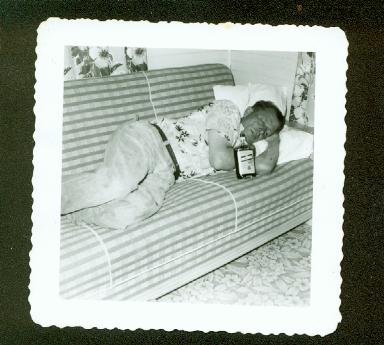
...the truly important issue isn't whether one found it funny or not. Humor is subjective, thank god. Obviously I and a lot of other people found it funny. But laughter is an involuntary physical reaction and there's no way to create such a reaction through subsequent argumentation. Dissection kills the joke---unless you're Andy Breckman (or Colbert, for that matter) and you work on a meta-level where the agonizing death of the joke is the meta-joke.fatherflot
...
My problem is the attempt by the so-called "liberal media" to make the incident disappear down the memory hole, compounded by the faulty logic which claimed that since the objects of the satire were made uncomfortable rather than amused, it was ipso facto not funny and therefore not worthy of mention in stories specifically dedicated to the night's events.
Whether one found it funny or not is immmaterial to the fact that despite the efforts of the mainstream media to kill the story, it has become one of the defining moments of the most secretive, imperial, and stage-managed presidency in US history. Colbert got inside the bubble and made The Decider squirm----and millions of people around the world felt like the message he delivered ("we're onto your fathomless bullshit and we have nothing but contempt for you and those who keep you comfortable") was their own.
gas tank bass
via zars
(Hail Freedonia!) deconstructing colbert
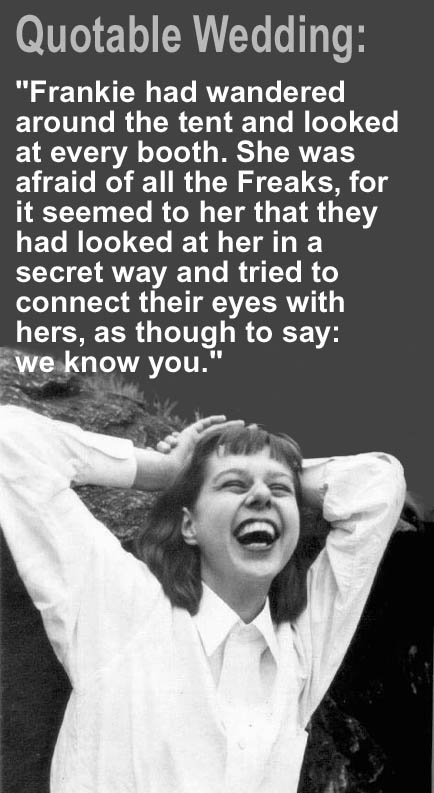
But ignoring a newsworthy keynote speech -- at an event the press corps itself set up -- doesn't go unnoticed anymore. Internet stables for liberals, like the behemoth dailykos.com, began rumbling as soon as the correspondents' dinner was reported in the mainstream press, with scant word of Colbert's combustive address.doug elfman chicago sun-times
This is trouble for the media. It has been losing customers to bloggers and Web sites for years. This won't help. The media's implosion of silence could be one of the final reasons many liberals use to not turn on TV news. It's not like they feel a vested interest in the industry anyway, since it has been bought and parceled by conservatives.
There is Rupert Murdoch's Fox News, that Pravda of GOP propaganda and breeding ground for Bush appointees. There are the networks' Sunday news shows that give more face time to Republicans. There are cable news channels like MSNBC, where Republicans have programmed the shows and hired on-air Republicans and conservatives-lite, from Tucker Carlson to Joe Scarborough and Chris Matthews. Some TV watchdogs even chronicle these conservative media daily, backed up by transcripts and video clips from TV news shows, in the expansive Web site, MediaMatters.com.
On cable, only CNN still plays the journalism-school middle ground most of the time, questioning liberals, moderates and conservatives with equal skepticism and respect. Clearly, in terms of advertising revenue, CNN alone cares to attract the disposable income of American viewers of all political stripes.
To liberals, this must be somewhat puzzling, since the rest of the conservative media primarily sides with a president whose approval ratings stand at 32 percent, a whisker better than Nixon's before he resigned in disgrace.
Liberals find true solace on TV only in the fake news of Comedy Central's "The Colbert Report" and "The Daily Show," a place where Jon Stewart merely has to show actual clips of Bush speaking, or Condi Rice, or Cheney, or Donald Rumsfeld to elicit laughter at their hubris. If NBC News let in audiences during its broadcasts, those people might also laugh at the president.
But the TV news corps, the unthinking and unblinking herd of pack journalists, prefer to laugh with the president, and kiss many viewers goodbye.
the folkston funnel / train watching location
art school confidential
D pressed
Obviously, Colbert is not the first ironic warrior to train his sights on the powerful. What the insurgent culture jammers at Adbusters did for Madison Avenue, and the Barbie Liberation Organization did for children's toys, and Seinfeld did for the sitcom, and the Onion did for the small-town newspaper, Jon Stewart discovered he could do for television news. Now Colbert, Stewart's spawn, has taken on the right-wing message machine.
In the late 1960s, the Situationists in France called such ironic mockery "détournement," a word that roughly translates to "abduction" or "embezzlement." It was considered a revolutionary act, helping to channel the frustration of the Paris student riots of 1968. They co-opted and altered famous paintings, newspapers, books and documentary films, seeking subversive ideas in the found objects of popular culture. "Plagiarism is necessary," wrote Guy Debord, the famed Situationist, referring to his strategy of mockery and semiotic inversion. "Progress demands it. Staying close to an author's phrasing, plagiarism exploits his expressions, erases false ideas, replaces them with correct ideas."
White, House, Correspondents', Dinner, Colbert, Main, Stream, Media, BlackOut
email attn public editor / public@nytimes.com / heres mine :
Dear PE,
Sad to say, but its not hard to see why your paper wouldn't cover Stephen Colbert's stunning performance at the WH correspondents' diner. His biting remarks merely held our press and president to minimum standards of truth. But it is surprising that you instead publish E. Bumiller's transparently non-news story on the patently weak routine enacted by the president and his comedic stunt double. For you to propagate the resulting disinformation suggests that you have learned nothing from the Judy Miller debacle. This is a lie by omission and you know it. Please address this matter publicly or continue to lose credibility for the MSM.
Bill Schwarz

